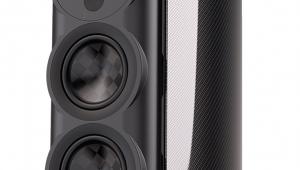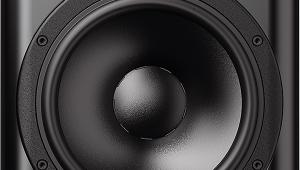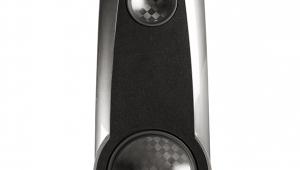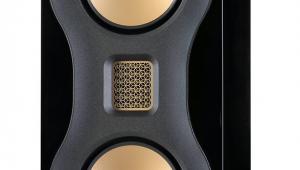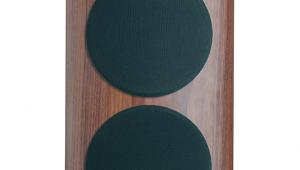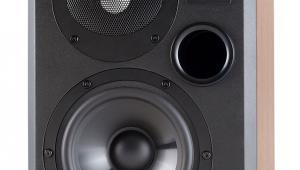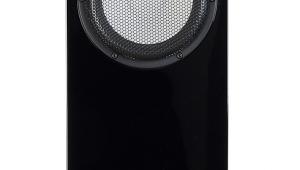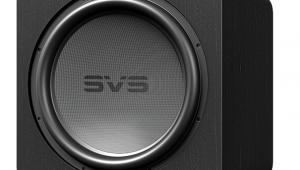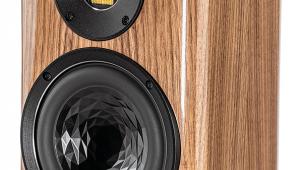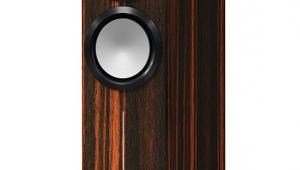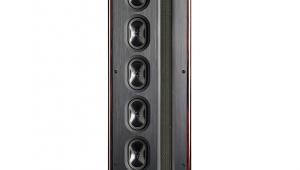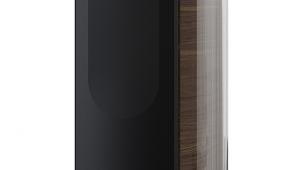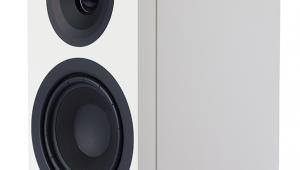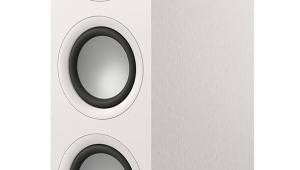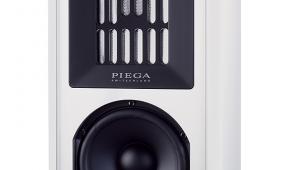Paradigm Reference Studio 60 (£2400)
 As befits the product carrying the largest price tag here, the Paradigm Studio 60, now in version 5 guise, looks the classiest of the bunch. A four-driver, two-and-a-half-way design, it is visually most notable for the side and back panels of its enclosure being transformed into a single, continuous curve, the inherent stiffness of which bodes well for low levels of cabinet talk.Also distinctive is its 25mm gold anodised aluminium dome tweeter whose diecast mounting protrudes from the top of the cabinet to reduce diffraction effects and is compliantly decoupled from the baffle to isolate it from vibration.
As befits the product carrying the largest price tag here, the Paradigm Studio 60, now in version 5 guise, looks the classiest of the bunch. A four-driver, two-and-a-half-way design, it is visually most notable for the side and back panels of its enclosure being transformed into a single, continuous curve, the inherent stiffness of which bodes well for low levels of cabinet talk.Also distinctive is its 25mm gold anodised aluminium dome tweeter whose diecast mounting protrudes from the top of the cabinet to reduce diffraction effects and is compliantly decoupled from the baffle to isolate it from vibration.
The 140mm bass-midrange driver, with its satin anodised aluminium cone and large phase plug, is decoupled too, as are the twin 140mm bass drivers with mineral-filled polypropylene cones. These operate up to 500Hz where they are rolled off, leaving the bass-midrange unit to continue up to the 2kHz crossover to the tweeter.
Diecast metal outriggers attached to the base carry adjustable rubber-capped feet for use on hard floors or spikes for stability on carpeted floors, but that doesn’t prevent this tall, narrow, heavy speaker being relatively easy to knock over.
Measurement of the Studio 60’s on-axis frequency response shows there to be a significant hole in its output from about 500Hz to 1.7kHz which almost certainly explains my finding it something of a disappointment in the listening room. There’s lots of musically significant information in this frequency range, and suppressing it has inevitable consequences.
LAZY RESPONSES
‘Honky Tonk Women’ is not, of course, a pristine audiophile recording. It is, predictably, a bit rough and ready, veering towards the coarse. What you expect from it is not a polite, smooth sound but one with grit and balls that conveys the band’s raw energy, even if the outcome isn’t always pleasant on the ear. Via the Studio 60 this quintessential vitality was dulled, the sound veering towards soft focus and lazy dynamics.
Grace Jones wasn’t really up its street either. This track demands a rhythmical alacrity that makes the dance pulse infectious, and an ability to tease apart strands in the mix. The Studio 60 rather homogenised things and dragged the tempo.
All told it was much happier on ‘Poetspeak’ and the two classical pieces, where its unassertive nature would appeal to listeners who abhor an in-your-face presentation. But it could sound a little hard on occasions, and it doesn’t major on information retrieval.
Originally published in the December 2011 issue


